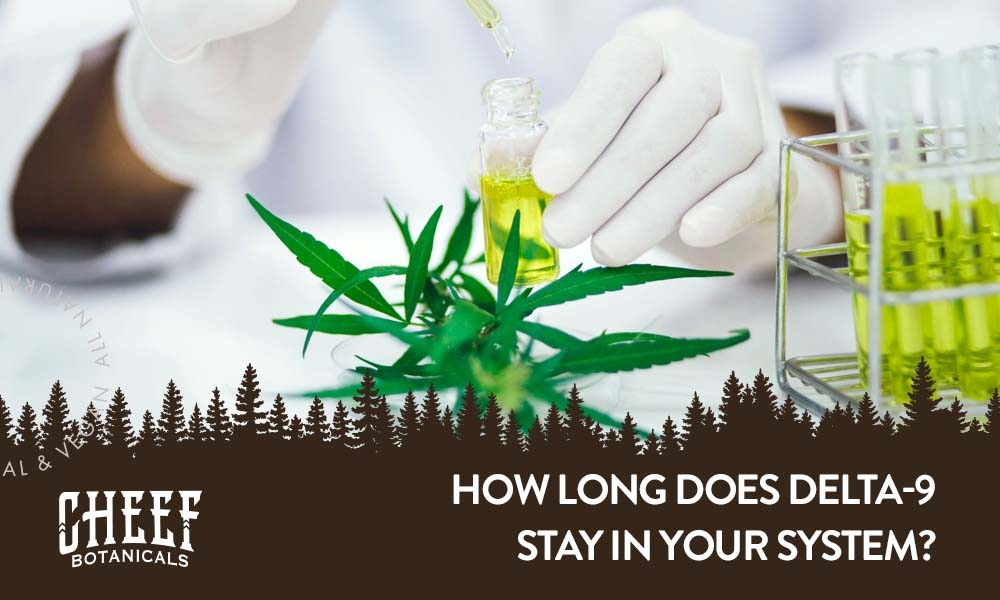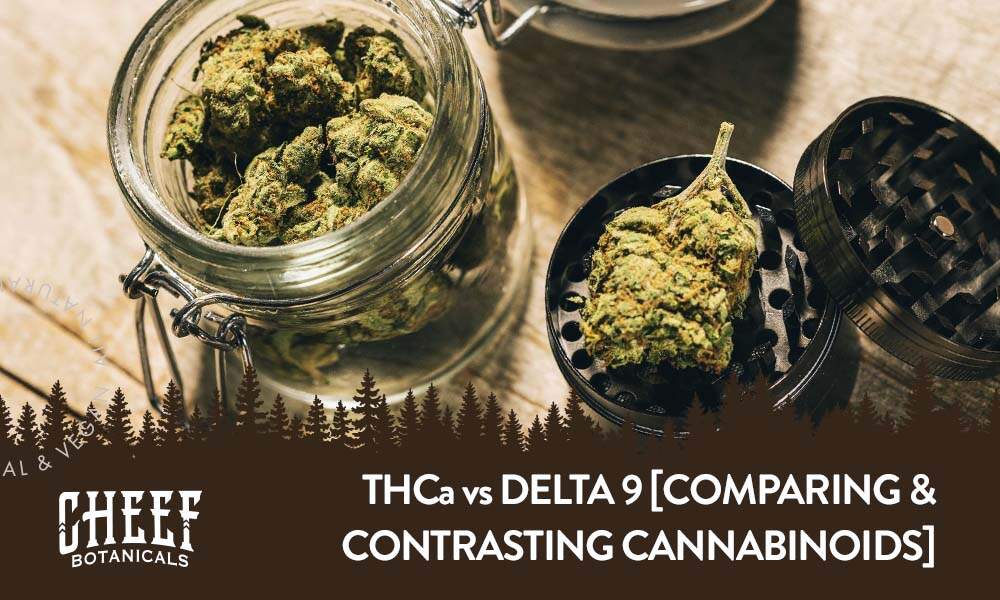nicDelta 9 is, without a doubt, the world's most popular cannabinoid. People love its energizing buzz and joyful mood boost. Many who take it regularly might be Googling a curious question: how long does Delta 9 stay in system? If this is you, you're not alone. Both connoisseurs and novices alike want to know the same thing. If you're curious about Delta-9 THC and its effects on you, you're in the perfect spot. We're going to cover everything you need to know about Delta-9 THC. This includes what it is, the good stuff it does for you, and what the law says. More importantly, we'll talk about how your body processes it and how you can tell if it's still there. If you have an upcoming drug test or are just curious, you owe it to yourself to know the answers. How long does Delta 9 stay in your system? Keep reading to find out.
What Is Delta 9?
Delta 9, also known as Delta-9-tetrahydrocannabinol (Delta 9 THC, Delta 9, D9, D9 THC, D9-THC, or THC), is the main compound responsible for the euphoric effects of marijuana. While it is primarily found in marijuana, small amounts—0.3% or less—can also be present in hemp, which is a cannabis plant known for its high levels of non-euphoric CBD (Cannabidiol). Delta-9 THC interacts with the body's endocannabinoid system (ECS), specifically binding with cannabinoid receptors in the brain and central nervous system. This interaction results in various effects on cognition, memory, mood, and perception. The chemical composition of Delta-9 THC is similar to another prominent cannabinoid, CBD, which has gained popularity for its non-euphoric properties and potential health benefits. When you consume Delta-9 THC, it triggers a series of biochemical reactions in the human body that lead to alterations in sensory perceptions, time perception, and mood. This alteration often results in feelings of relaxation, creativity, and enhanced sensory experiences. Individual responses to Delta-9 THC can vary widely. Factors that influence the benefits of Delta-9 THC include dosage, consumption method, and an individual's tolerance level. Some consumers may report heightened appreciation for music, food, and colors, while others may experience heightened anxiety or paranoia. 
Is Delta-9 THC Legal?
The legality of Delta-9 THC varies at the federal and state levels, impacting its sale and consumption. Hemp-derived Delta-9 THC products are 100% federally legal as long as they contain 0.3% or less THC. However, marijuana-derived Delta-9 THC products are federally illegal but may be legal in certain states. In the United States, Delta-9 THC's legal status is primarily determined by the federal government's classification of cannabis as a Schedule I controlled substance under the Controlled Substances Act. This designation imposes strict regulations on its production, distribution, and possession nationwide. Several states have implemented their own cannabis laws, leading to a patchwork of regulations. States like Colorado and California have legalized recreational marijuana, allowing for the sale of products with a certain percentage of THC, including Delta-9 THC. On the other hand, states like Idaho and Nebraska maintain a strict prohibition on all forms of cannabis, including Delta-9 THC. The 2018 Farm Billmade hemp and hemp-derived cannabinoids like Delta-9 THC legal as long as products containing them do not exceed or d 0.3% THC. Although the federal government has no problem with hemp, the same can't be said for certain states. Before you buy any Delta-9 products, research your state's laws regarding them and how much THC they can contain.
Is Delta 9 the Same as THC?
Yes, Delta 9 is another term for THC (tetrahydrocannabinol) that is found in cannabis and is responsible for its euphoric effects. So when you hear the term Delta 9, think of THC, and vice versa!
What Is the Difference Between Delta 9 and Delta 8?
Other cannabinoids have become popular substitutes for Delta 9. You may have heard of the popular Delta 8 (Delta-9-tetrahydrocannabinol, Delta 8 THC, Delta 8, Delta-8, D8, D8 THC, or D8-THC). Delta 9 and Delta 8 are both forms of THC, but they have slightly different chemical structures. Whereas Delta 9 is abundant in cannabis plants, in particular marijuana, Delta 8 is typically found in smaller amounts (less than 1%). Delta 9 is extremely euphoric and simulative, while Delta 8 produces milder euphoria and is more relaxing.
Detection of Delta-9 THC in the System
The detection of Delta-9 THC in the system is often carried out through most drug tests that analyze urine, blood, or saliva samples for its presence.
- Urine Test. Regarding urine testing, it is the most common method used to detect recent cannabis use. This is because Delta-9 THC and similar THC metabolites are present in urine for days to weeks after consumption.
- Blood Test. On the other hand, blood tests are more invasive but can provide a more immediate detection window, usually able to detect Delta-9 THC within hours of consumption.
- Saliva Test. For a non-invasive and convenient option for detecting recent cannabis consumption, opt for saliva tests. They can detect THC shortly after consumption, typically up to 24-48 hours.

Will Delta-9 THC Show up on a Drug Test?
Yes, Delta-9 THC may show up on a drug test. However, whether Delta-9 THC shows up on a drug test depends on various factors. These include metabolism, frequency of use, and the sensitivity of the test. Remember, generic drug tests are designed to detect THC metabolites, so chances are it will detect the presence of Delta-9 THC, even when consumed within legal limits.
Factors Affecting Detection in the System
Several factors influence the detection of Delta-9 THC in the body, such as frequency of consumption, potency and dosage, individual metabolic rates, hydration, and test sensitivity. Let's examine the nuances of each more closely.
Frequency of Delta 9 THC Consumption
Consumption habits, including the method of ingestion and the potency of the THC product, can impact how quickly the body metabolizes and eliminates THC. Body composition, such as the percentage of body fat and muscle mass, also plays a role in THC detection. Fat cells store THC, and it can re-enter the bloodstream during metabolism. Individuals who engage in chronic consumption of Delta 9 THC are more likely to have higher levels of the compound lingering in their system due to frequent intake. This heightened exposure can also lead to the development of tolerance over time, where the body adapts to the cannabinoid, requiring larger doses to achieve the same effect. As a result, frequent consumers may surpass conventional detection thresholds in drug screenings, making it challenging to clear their system effectively. Understanding these dynamics is crucial for interpreting drug test results accurately and implementing appropriate measures for detection and deterrence.
Potency and Dosage of Delta 9 THC
The potency of Delta 9 THC products, as well as the dosage, play a crucial role in determining the substance's detectability and effects on the body. Delta 9 THC concentration varies greatly among products, with some containing higher levels than others. This variation can directly impact how long the substance remains detectable in the body after consumption. Regarding drug testing, the type of product consumed also matters. For instance, edibles tend to have a slower onset of effects than inhalation methods, which might influence detection times. Understanding these nuances is essential for individuals concerned about drug test results and managing the consumption of Delta 9 THC products within a certain timeframe.
Metabolism's Role in Delta 9 THC Detection
Individual metabolic rates significantly influence the detection and elimination of Delta 9 THC from the body, affecting drug test outcomes. Metabolism plays a crucial role in the breakdown of Delta 9 THC, where enzymes in the liver process the compound into metabolites for excretion. The rate at which this occurs varies from person to person, impacting how long THC remains detectable in the body. Factors such as age, weight, genetics, and overall health can influence metabolic efficiency, influencing the window of detection for THC in drug tests. This variability often leads to differences in drug test results among individuals with different metabolic rates. 
Hydration
Hydration plays a crucial role in THC detection as it can significantly affect urine concentration and dilution, ultimately influencing test results. Maintaining adequate hydration levels can help speed up the body's natural detoxification process. This can potentially reduce the duration of THC presence in the system.
Test Sensitivity
The sensitivity of the drug test is also a critical factor. Higher sensitivity tests can detect much smaller amounts of Delta-9 THC, increasing the likelihood of positive results. Understanding these complexities is essential for individuals undergoing drug testing to be aware of potential outcomes.
How Long Does Delta-9 Stay in Your System?
The duration Delta-9 THC remains detectable in the body varies across urine, blood, and saliva samples due to differences in individual metabolism and elimination rates. Depending on the drug screening, Delta 9 can be detectable for hours, days, weeks, and up to three months after cessation. Here are some general detection windows for various drug tests. This is valuable information if you have a drug test coming your way, are subject to periodic drug testing, or are wary of generating a positive test result:
- How long does Delta 9 stay in the urine? In urine tests, Delta-9 THC can be detectable for up to 30 days in heavy consumers. A urine test is one of the most common drug tests for THC detection.
- How long does Delta 9 stay in the blood? Delta 9 is typically detectable in blood for a few hours to days after use.
- How long does Delta 9 stay in the saliva? A saliva test is quick and very easy to perform. They are highly sensitive and can detect Delta-9 THC within a few hours of consumption, but the window of detection is shorter in saliva tests compared to a urine test or a blood test.
- How long does Delta 9 stay in the hair? Delta 9 THC can be detected in a hair follicle test for an extended period, providing insights into historical consumption patterns. When someone consumes cannabis, Delta 9 THC binds to melanin, a pigment found in hair follicles, and becomes encapsulated within the hair shaft. Due to its long detection window, hair tests are often employed in workplace drug testing and forensic investigations to gain a comprehensive view of an individual's consumption history.
Related Post: How Long Does Being High Last?
How Long Does Delta 9 Stay in Breast Milk?
The duration of time Delta 9 stays in breast milk is similar to its presence in the bloodstream, which is 2-3 days. It is not recommended to consume delta 9 while breastfeeding as it can be passed on to the baby through breast milk.
Can Delta 9 Affect My Driving Ability?
Yes, Delta 9 can impair your driving ability and is not recommended to be taken before operating a vehicle. Delta 9 may affect coordination, reaction time, and judgment, making driving unsafe after immediate consumption. Regardless of the Delta 9 product you choose, be cautious, avoid overconsumption, and always use them responsibly. 
How to Flush Delta-9 THC From Your System
Effective management of Delta-9 THC in the system involves strategies to aid its flushing and removal processes, facilitating quicker expulsion. Common ways to flush out Delta 9 are hydration, physical activity, and consuming whole foods. Let's examine each one.
Hydration
Hydration is key when it comes to eliminating Delta 9 from your body. Drinking plenty of water helps to flush out foreign substances such as D9 through urine and sweat. Consume at least 8-10 glasses of water daily to support the removal process. Incorporating hydration-rich foods such as watermelon, cucumber, and oranges can further aid in cleansing your system. Plus, herbal teas and lemon water can help cleanse your system and support kidney function.
Exercise
Regular physical exercise is an effective way to speed up the elimination of Delta-9 THC. Engaging in activities that make you sweat, such as running, cycling, or yoga, can help release Delta-9 THC stored in fat cells. Aim for at least 30 minutes of moderate to intense exercise 4-5 days of the week to promote detoxification. Regular physical exercise, such as cardio or strength training, can help boost your metabolism, leading to faster elimination of THC metabolites. Sweating through activities like saunas or hot yoga can also aid in expelling toxins from your body.
Eating Whole Foods
Incorporating fiber-rich foods into the diet can aid in cleansing the digestive system and enhancing overall detoxification capabilities. One effective way is to consume foods rich in antioxidants, such as fresh berries, spinach, and nuts, which can aid in flushing out your system. Incorporating herbs like milk thistle or dandelion root into your diet can support liver function, a key player in detoxification. Also, incorporating natural ingredients like lemon water, green tea, and dandelion root can support your body's natural cleansing processes. These substances have diuretic properties that help to rid your body of Delta 9 more efficiently.
Final Thoughts - How Long Does Delta 9 Stay In System?
The answer to your highly-searched Google question — "How long does Delta 9 stay in system" — has been revealed! Everything from your metabolism to how often you consume it plays a role, greatly impacting duration times. Depending on these factors, Delta 9 can stay in your system from a few days to several weeks. If you're worried about a positive drug test result, we recommend ceasing all Delta 9 THC consumption from hemp and marijuana products. This includes products with Delta 9 derivatives, like Delta 8, which also contain Delta 9 metabolites. While many people can't get enough of the euphoric experiences brought on by Delta 9, it's crucial to stay informed about the legality of these products, as it varies widely from state to state. Before consuming Delta 9, always ensure your actions fall within the bounds of your local laws, and keep track of the THC levels mentioned in your chosen products. If you've found this guide useful and are ready to explore the world of Delta 9 responsibly, don't hesitate — shop our selection of legal Delta 9 products now!



 100mg Delta-9 Gummy - Top Seller
100mg Delta-9 Gummy - Top Seller
 D9-THC Live Resin Gummies - Excellent Choice
D9-THC Live Resin Gummies - Excellent Choice
 D9-THC + CBN Gummies for Sleep - Highly Rated
D9-THC + CBN Gummies for Sleep - Highly Rated
 Delta 9 Gummy Cubes - Good Value
Delta 9 Gummy Cubes - Good Value


Leave a comment
This site is protected by hCaptcha and the hCaptcha Privacy Policy and Terms of Service apply.